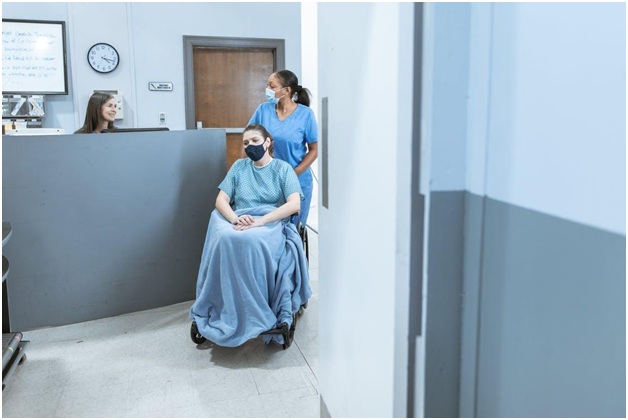According to the Bureau of Labour Statistics, nursing is the largest workforce in the US medical field, with more than 2.5 million individuals working. And even this number is turning manifold every year with lots of fresh graduates from the nursing schools. Now, you can understand how much competition this field is offering. The nursing profession is known for its diversity d scope in every area of healthcare. That’s the reason there are tens of specializations available in nursing.
Being in this profession, you must have been thinking of increasing your experience and skills every passing day. Indeed, all specializations and careers in nursing are rewarding if you give them your earnest efforts. However, among so many options lying in front of you, it can become challenging to choose the right one ensuring job security and desired ROI. Moreover, it also depends on an executive role, an entry-level position, or something else. So, here is a complete guide about the most trending specializations in the nursing department. All of these programs have high demand and offer an excellent earning opportunity.
1. CERTIFIED REGISTERED NURSE ANESTHETIST
Certified Registered Nurse Anesthetists (CRNAs) working in operation theatres and administering every type of anesthesia. They work in every kind of environment and procedure-from pain management to open-heart surgeries. CRNAs are the most leading personnel in providing a wide range of affordable, reliable, and safe treatments of multiple acute and chronic pains. These nurses work side by side with physicians, podiatrists, dentists, surgeons, anesthesiologists, and other qualified healthcare professionals to improve patients’ quality of life.
CRNAs evaluate the patient to determine the type and amount of anesthesia best suitable according to their physiological conditions. Moreover, which kind of anesthesia is better in which kind of procedure. These nurses also work and figure out any underlying health conditions, allergies, or medications the patient is taking to ensure proper anesthesia administration for best effects.
CRNAs are among the most demanding and highly paid healthcare professionals due to their high levels of expertise. The average annual salary of CRNPs is $133,780.
2. FAMILY NURSE PRACTITIONER (FNP)
Family Nurse Practitioners share their roles with primary care physicians. They work independently or with other healthcare professionals to take care of patients’ health throughout their lifespans. It means health maintenance from infancy to adulthood.
Family nurse practitioners or FNPs work in three major areas, including internal medicine, primary care, and urgent care. FNPs perform a regular medical checkup, including physical examinations, and make the record. They also have the prescribing authority and can also order some diagnostic tests to precise access to patient health conditions. After making a diagnosis with an attending physician’s consultation, FNPs develop treatment plans and counsel them accordingly. Moreover, they are there to maintain all the records and assist throughout the medical procedure. FNPs are one of the fundamental ways to go in managing patients with chronic illnesses such as diabetes.
Due to their wide range of scope, FNPs are paid heavily throughout the world. A family nurse practitioner’s average earning is $111,840 per annum or $53.77 per hour.
FNPs need to have significant experience, education, and training records. There are multiple options available for those who aspire to become one. Online family nurse practitioner programs or advanced certifications equip candidates with the necessary information about health maintenance, disease diagnosis, and treatment. All these programs are worth your time and effort because FNPs are becoming an essential pillar of any healthcare setting. As the number of physicians decreases with the increasing number of patients asking for primary care, FNPs can become the first-hand armor in providing primary care. FNPs can also grow and serve their role in rural and underserved communities where healthcare facilities are not advanced.
3. ONCOLOGY NURSE PRACTITIONERS:
Oncology nurse practitioners supervise and take care of patients admitted to the oncology ward. Precisely, they are involved with acute or chronic cancer patients. Most of the time, ONPs work in tertiary care hospitals specializing in oncology. However, they can also find their scope in ambulatory care centers, medical offices, or provide home health care. Cancer is never age-specific. So, oncology nurses deal with people of all age groups, from children to adults and geriatrics. Oncology nurses have advanced practice master’s degrees, advanced knowledge, and a high level of training. As the oncology department deals with highly poisonous radioactive material and sensitive instruments, oncology nurses must-have specialties to manage all in the surroundings. These nurses can primarily function as coordinators, educators, direct caregivers, consultants, administrators, and researchers.
Oncology nurse practitioners evaluate, provide, and guide nursing care to cancer patients and their communities and family. They also work with other support staff and cancer care providers.
In the US, the average salary of an oncology nurse practitioner is $77,460.
4. GERIATRIC NURSE
Geriatric nurses provide healthcare to elderly patients, particularly to those suffering from chronic illnesses. Chronic illnesses are widespread among the senior population, including respiratory disorders, hypertension, and diabetes. These nurses work with this population to effectively improve their quality of life and implement any medical treatment plan. Geriatric nurses worked in hospitals and assisted living facilities, nursing homes, and community health centers. They provide active support, care, friendship, and compassion to their elderly patients in all these places.
Moreover, senior nurses also find their home treatments scope to provide regular care and assistance to patients at home. At this level, the old nurse can work and function independently and gain the most confidence of the patient and family members. FNPs can also work with patients who are unable to help themselves and manage daily life activities. Moreover, patients with diminished mental capacities with age lose their decision-making power. Geriatric nurses work in concord with physicians in their regular examinations and procedures. They can also order multiple diagnostic tests to evaluate patient health conditions precisely. These nurses develop a personalized patient care plan and ensure adequate medication administration, food choices, and lifestyle to meet health goals.
Due to the highly increasing number of the elderly population, chronic ailments have spiked a lot. Therefore geriatric nurse practitioners are in demand throughout the world. The average salary of senior nurses in the US is $77,460.
CONCLUSION
Nursing is a promising profession having a broad scope in all the fields of health care. No doubt there are multiple specializations available in this field. However, the selection of the domain for you must be dependent on one’s interest. Try to consider the future aspect, salary, and job demands before choosing one specific path for you. We have mentioned a few highly flourishing and trending specializations in the nursing profession, good sound economic support, and respect. However, remember community nurses, such as family nurse practitioners, are the most trending of all the time. So, if you have an interest in any of such specialization, do not hesitate.



















